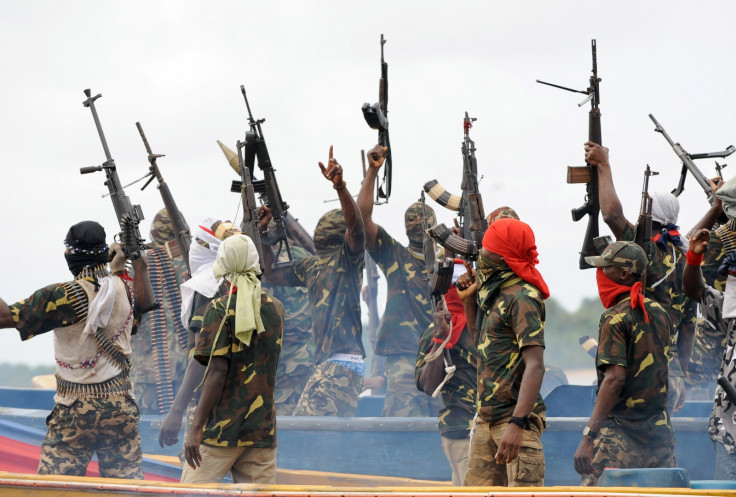Nigeria's Vice President Yemi Osinbajo heads delegation to end Niger Delta crisis
Oil-rich area witnessing renewed violence at hands of militant groups that bomb oil and gas facilities.
Nigeria's President Muhammadu Buhari has appointed his deputy as head of delegation tasked with resolving an ongoing crisis in the Niger Delta. The oil-rich region is seeing renewed violence at the hands of militant groups that bomb oil and gas facilities.
Vice President Yemi Osinbajo, who acted as president while Buhari was on medical leave in the UK. visited several states in the Niger Delta in a bid to promote peace in the restive area.
The presidential adviser on Niger Delta Affairs, Paul Boroh, said Buhari is confident that Osinbajo will be able to meet his expectations.
"President Buhari knew what he was doing when he directed the vice president to head the delegation," Boroh said, according to the Premium Times newspaper.
"You need to see him in action when he visited different communities in the oil-producing states. There is no doubt that the president knows that peace in the Niger Delta region is crucial to the development of the entire country,'' he said.
Boroh added that Osinbajo is to visit the remaining states in the Delta, to build confidence and conduct a a fact-finding mission.
Niger Delta violence explained

Last year, Buhari met leaders of the Delta region to discuss solutions to renewed violence in the oil-rich area.
Attacks on oil pipelines, carried out mainly by a militant group called the Niger Delta Avengers (NDA), have brought Nigeria's oil production to a 30-year low.
READ MORE: Nigeria's oil war
The group, which says it fights to end disenfranchisement of impoverished communities in the Delta and obtain greater shares of oil revenues, has vowed to bring the country's oil production "to zero".
Nigeria, one of Africa's biggest oil producers, currently pumps between 1.9 million and 2.1 million barrels per day (bpd). Oil output was 2.2m bdp at the beginning of 2016, before attacks started.
Buhari said the Nigerian government would invest $10bn (£8bn) in the area to build infrastructure and put an end to the militant insurgency in the area.
Leaders from the Delta presented a 16-point proposal to resolve renewed violence. The document calls, among other things, on the full implementation of the amnesty programme to reintegrate ex-militants in communities, assist displaced people, improve infrastructure and clean-up territories damaged by repeated oil spills.
Buhari welcomed the 16-point request, but claimed leaders in the Delta "had more to do" to ensure peace, given their influence on militant groups in the area.
Nigeria up close: Check out our Flipboard magazine
Birth of militants in Niger Delta
Militant groups in the oil-rich Niger Delta region took hold in the early 2000s following the deterioration of living conditions blamed on the increase of oil-related activities by foreign exploration corporations. Tensions flared up in the local communities as some ethnic groups felt they were being exploited and did not benefit from the crude oil on their land.
The repeated oil spills that considerably damaged the environment and affected people's health further deepened the communities' frustrations. After being elected in 2015, Buhari extended a 2009 amnesty that was granted to 30,000 former militants in the area.
© Copyright IBTimes 2025. All rights reserved.






















